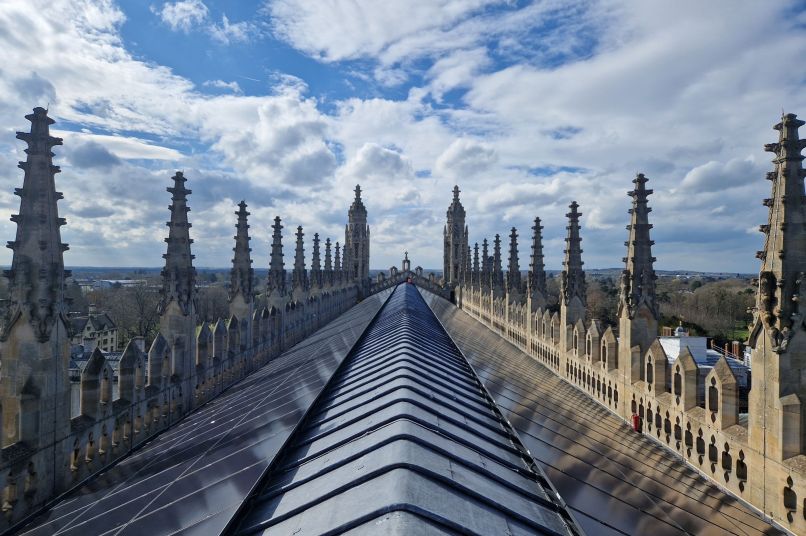Student Sustainability Guide

Recycling
Cambridge City Council collects King’s College’s bins. There are three bins:
- Food Waste
- Recycling
- Landfill
In every room there are two bins, the red bin is recycling, the other is landfill. In every kitchen there is also a food waste bin. If this is not the case, email housekeeping.
It is very important that the correct waste goes in the correct bin, otherwise recyclable materials will be wasted, and need to be carbon-intensively produced from scratch, or recyclable waste will be contaminated by non-recyclable waste, undermining recycling efforts.
Details of what specific waste goes in which bin is available on the Cambridge City Council Recycling Website but here are the basics:
Food Waste
- Any organic or food waste, such as peels, egg shells, tea bags, coffee grounds, meat and bones etc.
Recycling
- Hard plastics, plastics which are suitable for home recycling, or clear plastics which say “Recycle at Large Supermarkets”
- Metal cans, aluminium foil
- Glass jars, bottles etc
- Paper and carboard, including coloured paper and greasy cardboard (e.g. a pizza box)
- Aerosol spray cans
Landfill
- Shiny plastic wrappers such as sweet wrappers
- Soft plastics such as cling film
- Used tissues
- Broken glass
Additional Recycling Information:
- Used batteries may be recycled using the battery recycling point located on the windowsill of the Post Room, Porters’ Lodge.
- Clothes and shoes can be donated to charity shops (many can be found on Burleigh St) or recycled at a recycling point (George IV Street or Lammas Land car park)
- Items that remain useful, but are no longer needed, should be donated to the Library of Things (Only current undergraduates can use the website. Email the KCSU greens officer for more information).
Heating Information
The majority of King’s buildings are heated by gas-fired central heating systems, with a central boiler and pump that comes on a few times a day for about an hour. On each of your radiators, you can control the flow through your radiator when the heating is on. Twist the valve clockwise to turn the radiator down, anticlockwise to turn it up. If your valve is too stiff to turn, the markings have rubbed off, or there is some other issue, please submit a maintenance request. You should have the ability to operate your radiator.
Please do not open your windows until you have tried turning your radiators off. If you do need to air the room, it is much more efficient and effective to open all you windows as wide as possible for a couple of minutes and then close them, rather than leaving the window ajar for a prolonged period of time.

Electricity and Water Information
Whilst electricity in the UK is switching to low-carbon sources, much of our electricity is produced by burning gas which produces carbon emissions. To minimise electricity usage, ensure that you do not leave lights on, appliances running in the background or have the oven on for any longer than you need to. Use shorter, cooler laundry cycles.
The southeast of the UK is particularly short of water, meaning that water must be treated as a valuable resource. Save water by not leaving taps running (for instance whilst brushing teeth), having shorter showers and by having shorter laundry cycles.
What else can you do?
Travel
Travel sustainably using the Ferris Travel Grant. For instance travelling by train rather than by aeroplane to reduce emissions.
Food
Consider lowering your consumption of carbon intensive foodstuffs such as meat (especially beef and lamb) and dairy products. Now is the perfect time as you have the freedom to choose your diet, cooking for yourself and purchasing food from the servery.
Stuff
Avoid buying carbon intensive products or wasting goods by borrowing from / donating to the Library of Things.
Banking
Some banks have more ethical / environmental policies than others. Research and be aware of this when making decisions about who you bank with.
Get Involved
Join the King’s Greens Society or another Cambridge sustainability society to learn more and help make a positive difference to the planet.
Engage with others
Encourage other people to also make climate positive choices, even if this is just letting them know recycling rules, or asking them to turn their radiator down before opening their windows.
